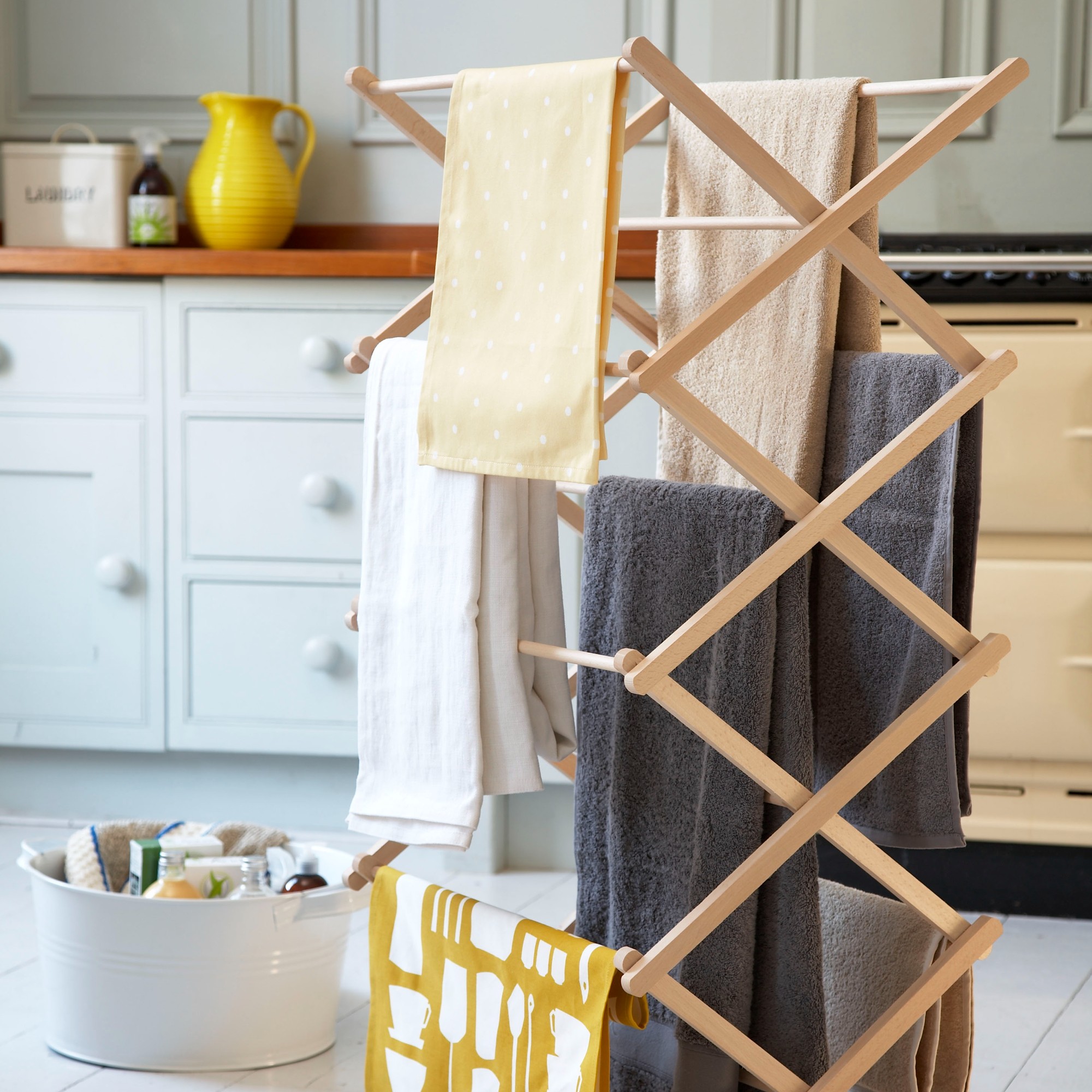
As autumn rears its head and brings cold temperatures and wet weather with it, it becomes almost impossible to dry washing outside. And while both tumble dryers and dehumidifiers can help you dry them inside, have you ever wondered which one wins the dehumidifier vs tumble dryer debate?
As it’s long been known that large, under-the-counter tumble dryers will successfully spin the moisture out of your clothes, it may seem strange to put this old trusty head-to-head with the best dehumidifiers. But with more and more people learning just how impressive dehumidifiers can be at drying clothes, it’s fair to say that those same people are questioning whether they can swap one for the other.
So, if you’re struggling to dry your clothes in winter, we’ve compared these two options in terms of ease of use, efficiency, storage, affordability, and the Ideal Home team’s expert knowledge of both appliances to see which one can be crowned the dehumidifier vs. tumble dryer debate winner.
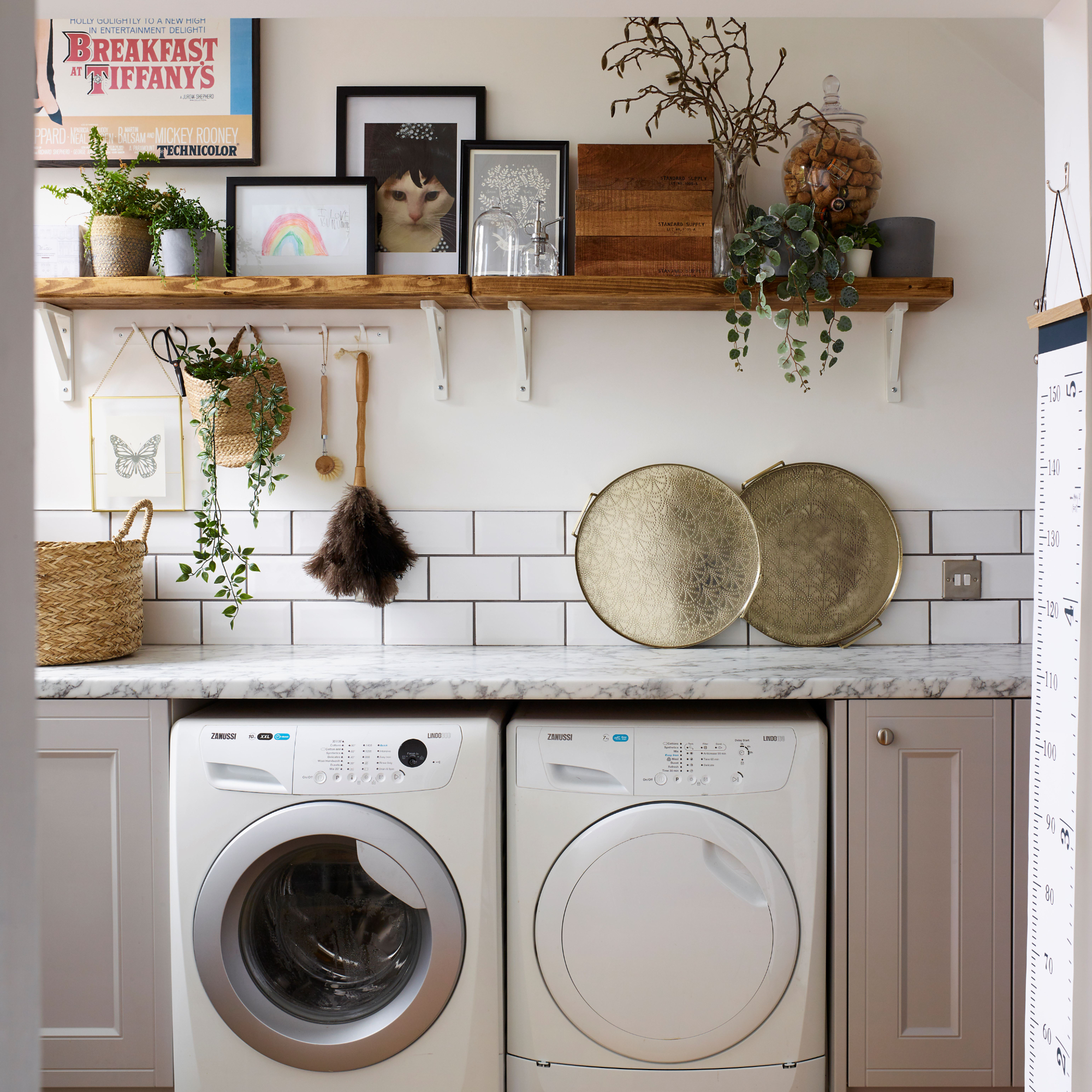
Dehumidifier vs tumble dryer: Which is easier to use?
On paper, tumble dryers and dehumidifiers are both easy to use. In most cases, all you have to do is press a few buttons and wait for them to work their magic. But when you get down to the specifics, there’s no doubt that tumble dryers are easier to use.
As Penny Bellis, Product Marketing Manager at Haier UK & Ireland (Laundry Division), explains, ‘There’s less mess and disruption in the house - with clothes hanging around on clothes racks or radiators. That’s because the clothes go in the tumble dryer wet, and they come out of the tumble dryer dry. Then, you can put them away instantly.
The same can’t be said for dehumidifiers, though, as you’ll also need to hang your wet clothes onto one of the best clothes airer and drying racks for them to work effectively.
Plus, while dehumidifiers do work hard to dry clothes, this process can be hindered by placing your dehumidifier in the wrong place, a common dehumidifier mistake.
That’s because dehumidifiers rely on circulating air, which can’t be done if it’s in one of the worst places to put a dehumidifier. This means that you have to keep the dehumidifier in the middle of a room (ideally, a smaller room rather than a larger one), which isn’t always possible in every house.

However, a dehumidifier can still be easy to use in the sense that it can help elsewhere around the house.
As Chris Michael, Managing Director of Meaco, explains, ‘While you have no clothes to dry, you can put your dehumidifier to work to protect the rest of your home. There’s often excess moisture in your home – particularly during the colder months. Cooking, showering – anything that creates moisture – are all ways that you introduce more moisture into your home.’
So, you can use it to keep your home at the ideal humidity level, too. But even with this in mind, we’d still have to say that using a tumble dryer is easier in the dehumidifier vs tumble dryer debate.
Dehumidifier vs tumble dryer: Which one dries clothes fastest?
If time isn’t on your side, a tumble dryer will be - and if you’re trying to dry your outfit at the last minute, a tumble dryer will certainly work better for you.
A representative for Beko explains, ‘It’s quicker, which makes it ideal for larger households. If you need to dry large loads in minimal time, a Heat Pump tumble dryer will dry your clothes a lot faster than hanging them up to dry.’ In fact, a tumble dryer will usually completely dry your clothes in less than an hour, so they’ll be ready to wear in no time.
However, you’ll need to be patient if you want to dry your clothes using a dehumidifier. On average, it’s suggested that it’ll take around 4-5 hours to dry your clothes using this appliance. This timespan will vary from load to load, though, as the overall time will be determined by the clothes you’re trying to dry, how big the load is, how ventilated your room is, and the temperature in the room.
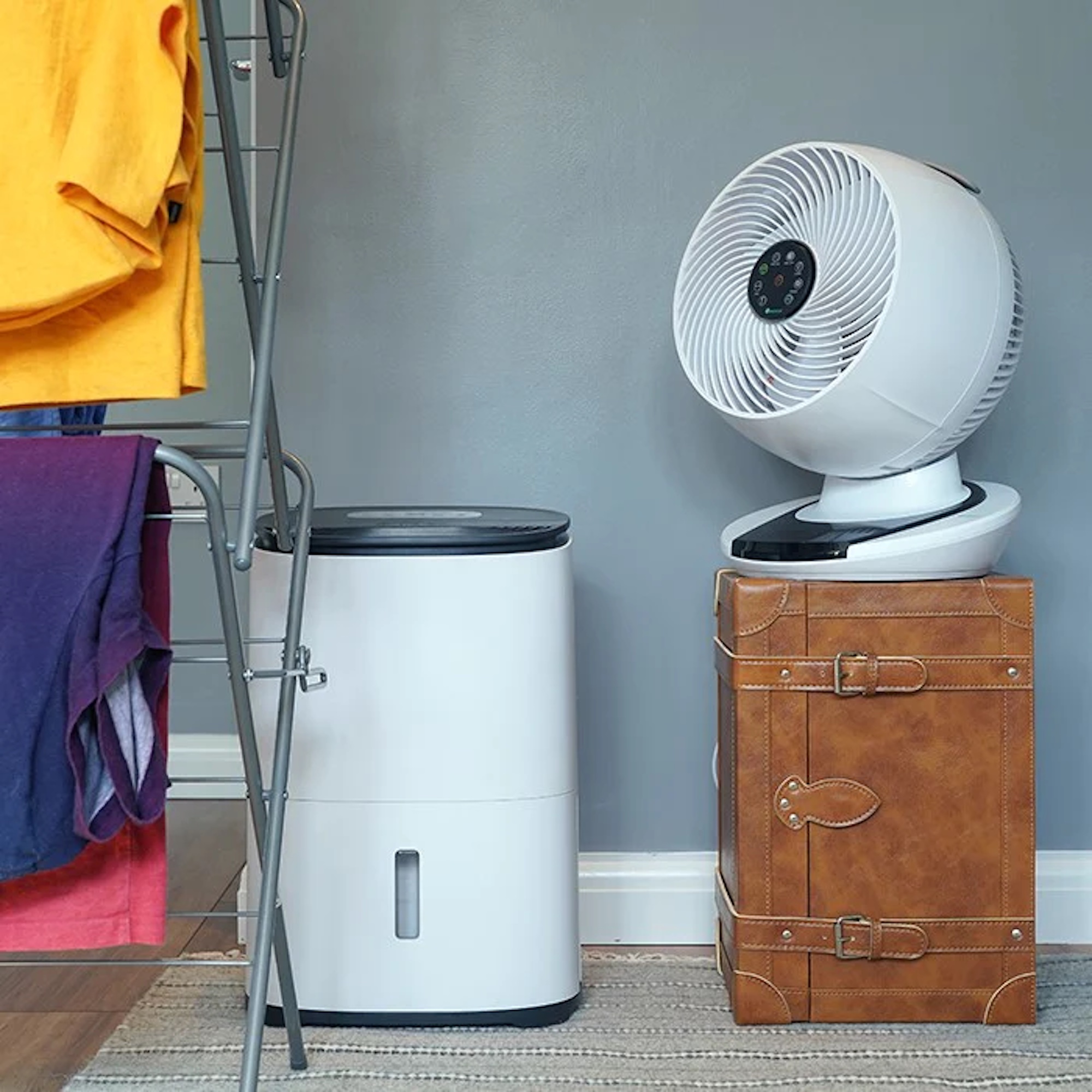
However, in our heated airer vs dehumidifier comparison, we still found it the fastest alternative drying method.
Nevertheless, there are ways to speed up the drying time when drying clothes with a dehumidifier. For starters, you should avoid bunching up your clothes on the drying rack and instead give them space for the air to circulate. You should also close all windows and doors and turn your clothes around on the airer every hour or so to ensure an even dry.
It’s also well worth buying a dehumidifier with a dedicated laundry mode. This mode will typically offer a higher fan speed and will automatically turn off after six hours, too. This means that you can simply turn on your dehumidifier and forget about it for a while.
Dehumidifier vs tumble dryer: Which is easier to store?
For the first time so far in the dehumidifier vs tumble dryer debate, the dehumidifier wins. And if you live in a small house and don’t have a dedicated utility room, finding somewhere to put a tumble dryer can be a struggle.
After all, these appliances are extremely big, meaning some people just don’t have space for such a thing. Even if you do have space in your garage for a tumble dryer, you need to make sure that you have power going to this external room. Plus, once they’re plumbed in, there’s no moving them.
On the other hand, dehumidifiers come in various shapes and sizes, so you can find one that suits your home - and they’re portable. This means that you can store your dehumidifier out of the way in a cupboard when you’re not using it and just bring it out when you have a load of washing to dry.
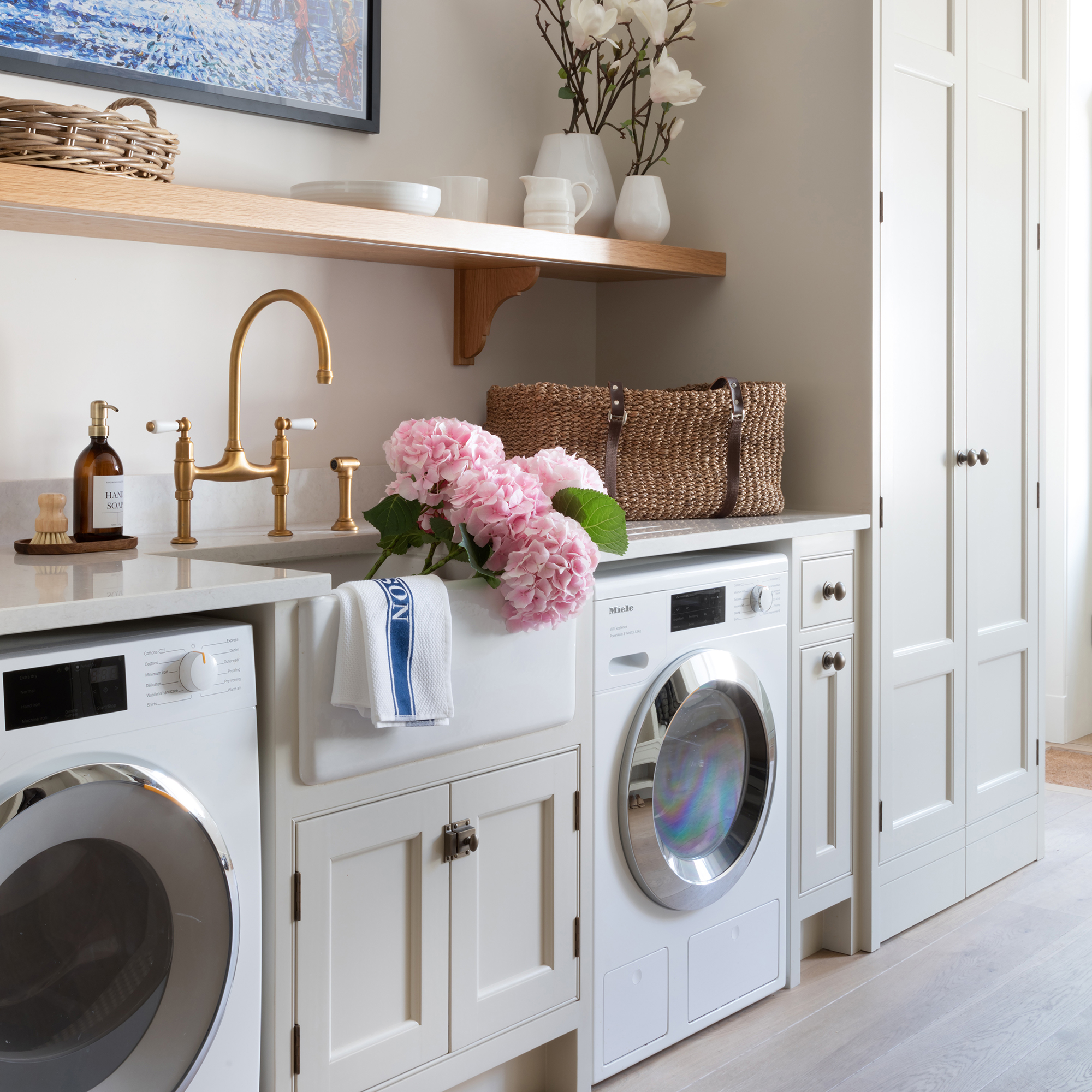
Dehumidifier vs tumble dryer: Which is cheaper to run?
In the dehumidifier vs tumble dryer debate, there is one clear winner. Yes, in terms of the overall price of the appliance and the running cost, a dehumidifier always wins.
At Ideal Home, we pride ourselves on giving you up-to-date information on how much appliances will set you back. And while how much a tumble dryer costs to run will depend on the individual tumble dryer and the average price per kWh of electricity at the time, you can generally expect a 9kg vented tumble dryer to set you back over £1 per cycle, which will amount to over £100 per year on average.
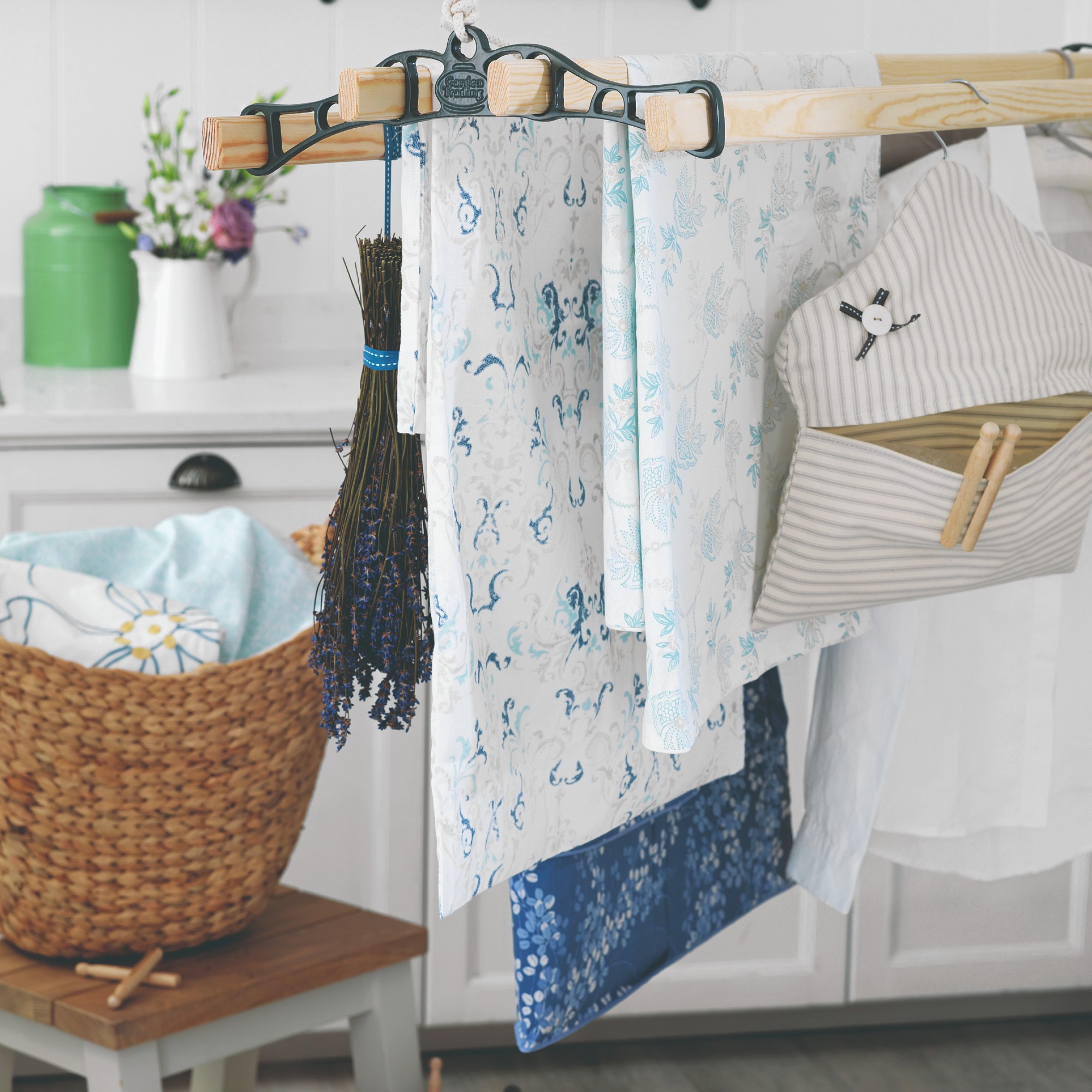
This is very different to how much it costs to run a dehumidifier. Again, this varies on a dehumidifier-by-dehumidifier basis. Generally, though, a 20L dehumidifier will cost around 15p an hour to run. Alternatively, a 12L dehumidifier will set you back around 5p an hour to run.
Even if you do run a 20L dehumidifier for 5 hours to dry your clothes (as per the general guidelines), that’ll still cost you less than £1.
Plus, you have to think about loads when it comes to tumble dryers. Although tumble dryers are quick and efficient, they’re also limited in size. This means that you can only dry a certain kg of clothes at one time. So, you may have to run multiple loads to dry all of your wet washing - while you can dry multiple loads of washing with one dehumidifying session.
The final verdict: Which should you buy?
If you don’t have too much spare time on your hands but do have a few spare pennies to spend, a tumble dryer will certainly be the best option for you. However, for general usage, we’d always crown a dehumidifier as the best option for drying clothes.
Drying clothes without a tumble dryer is incredibly easy, and a dehumidifier can do it with very little input on your part. Not only is a dehumidifier incredibly easy to use, but it also has the benefit of being a lot cheaper to buy and run than a tumble dryer.
Dehumidifiers are also great all-rounders for those who want to get rid of mould and keep their homes condensation-free, as you can simply plug these portable appliances around the house and tackle any excess moisture you may be dealing with.
And while we certainly appreciate the speed and ease of a tumble dryer, we think that dehumidifiers win this battle.
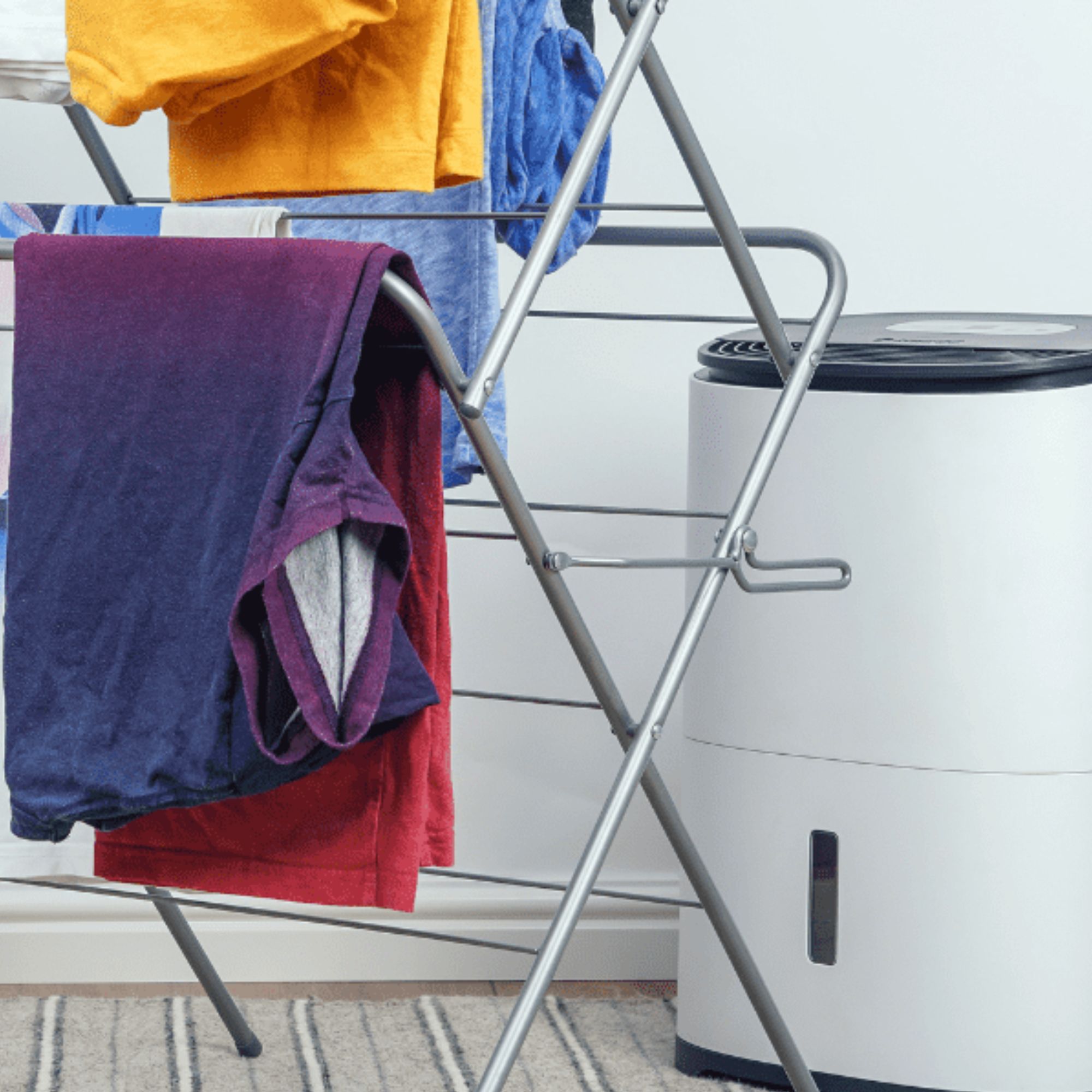
The best dehumidifiers for drying clothes
At Ideal Home, we've tried and tested almost every dehumidifier on the market today. In our expert opinion, these are the dehumidifiers that dry clothes the fastest based on our testing process.
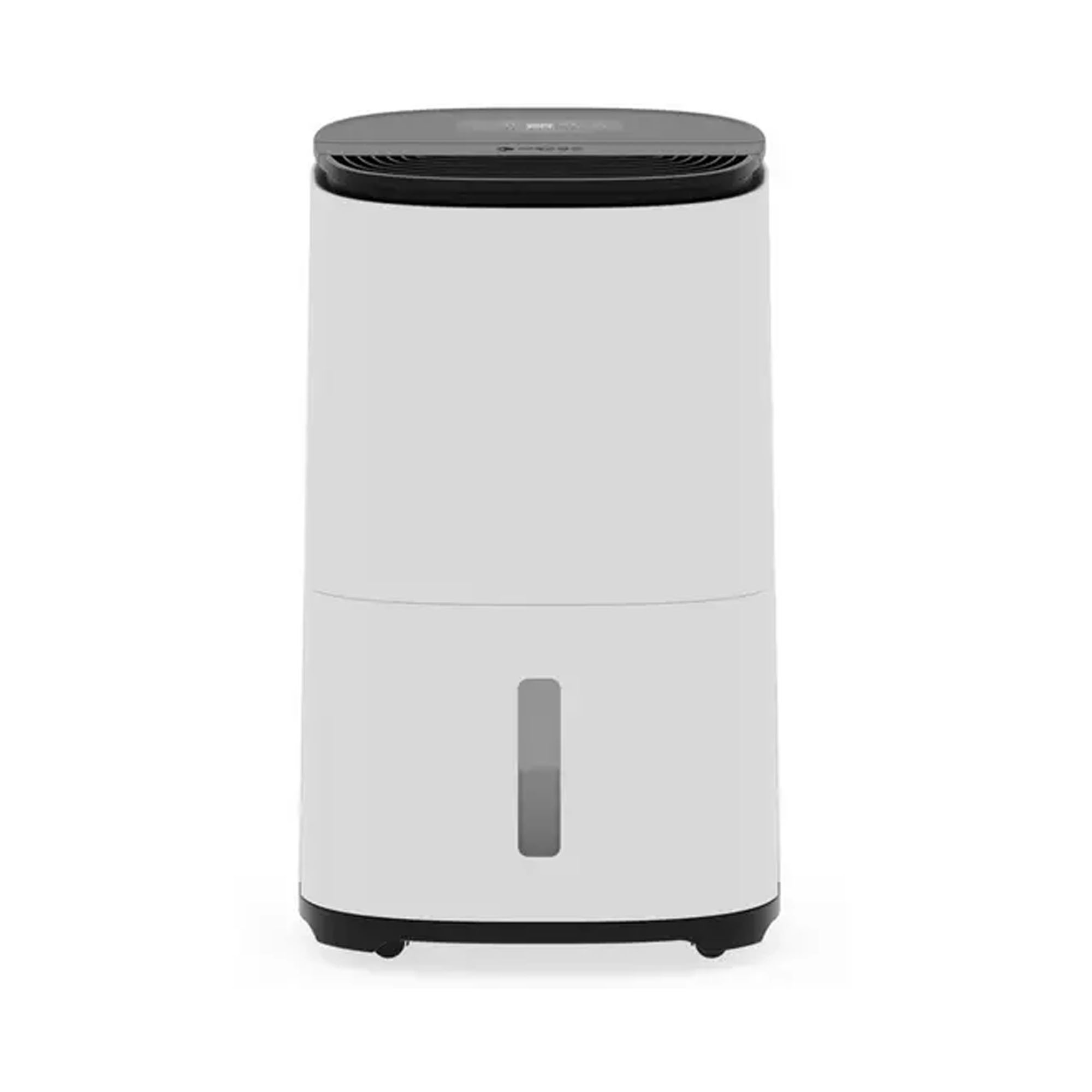
Best dehumidifier overall
The best dehumidifier we've tested, the MeacoDry Arete One is quiet, easy to use, works superbly and is very energy-efficient compared to other compressor dehumidifiers. Plus, its Smart Laundry Mode is brilliant at drying wet washing indoors.
Our MeacoDry Arete One Dehumidifier review has more detail.
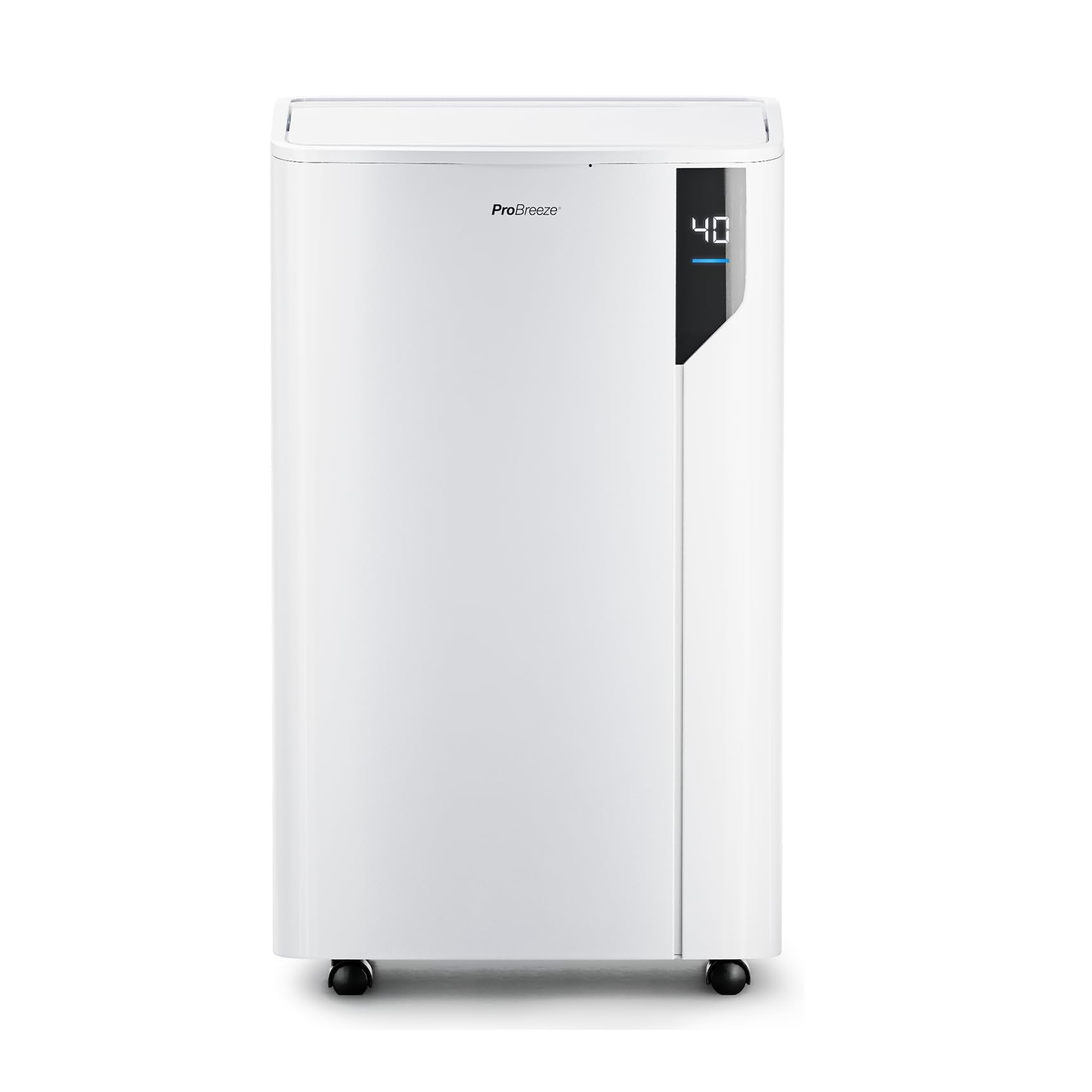
Best dehumidifier for drying clothes
Whilst we don't think it can quite beat the MeacoDry Arete One on overall performance, Pro Breeze's latest launch, the 20L Premium Dehumidifier with Special Laundry Mode, is the best dehumidifier for drying clothes that we've tested.
Our Pro Breeze 20L Premium Dehumidifier with Special Laundry Mode review has more detail.
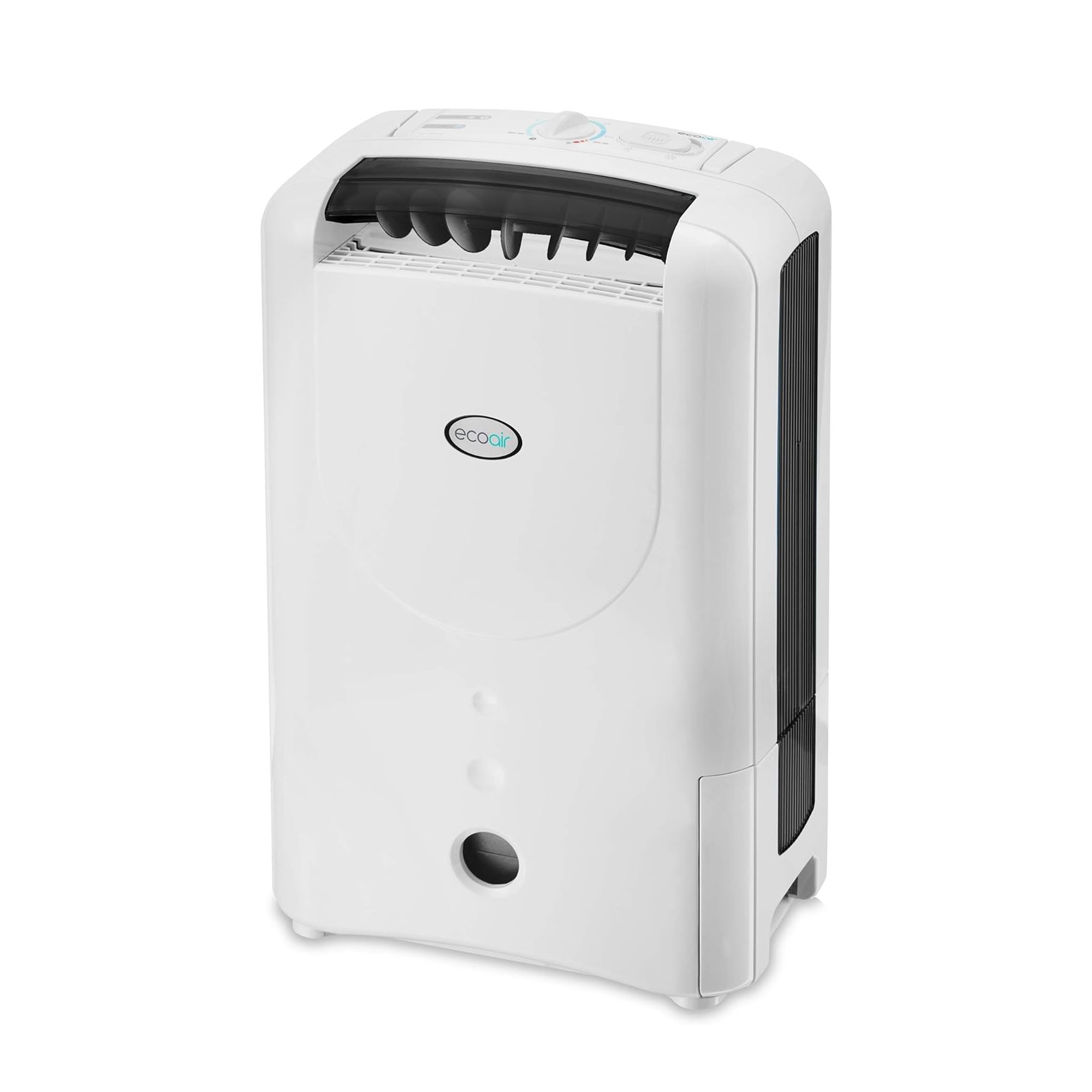
Best for unheated rooms
The EcoAir DD1 Simple MK3 can be operated in any space that's above 1°C, making it a great option for a garage, basement, conservatory or unheated room during the winter months – including a less than toasty utility room.
Our EcoAir DD1 Simple MK3 Dehumidifier review has more detail.
FAQs
Can a dehumidifier replace a dryer?
Yes, as long as you appreciate that a dehumidifier is a very different appliance and won’t dry your clothes as quickly as a tumble dryer. But in today’s day and age, a tumble dryer is considered a luxury to those who have the space to house a tumble dryer as well as more money to spend on energy bills.
If you’re thinking of replacing your tumble dryer with a dehumidifier, it’s important to understand how a dehumidifier works and how to use it. After all, using it in the wrong way can affect its efficiency and could potentially leave you dreaming of your old dryer.
Will a dehumidifier dry clothes in a cold room?
Yes, a dehumidifier should be able to dry clothes in a cold room - as long as it’s not too cold. That’s because most compressor dehumidifiers won’t be as effective if the temperature is below 15C, so you may find that your clothes take a lot longer to dry.
For best results, you should always try and use a dehumidifier in a room that’s at least 20C. This way, your clothes will dry faster.
Although we appreciate that some people love their tumble dryers, dehumidifiers are becoming more and more popular - and it’s not hard to understand why.







